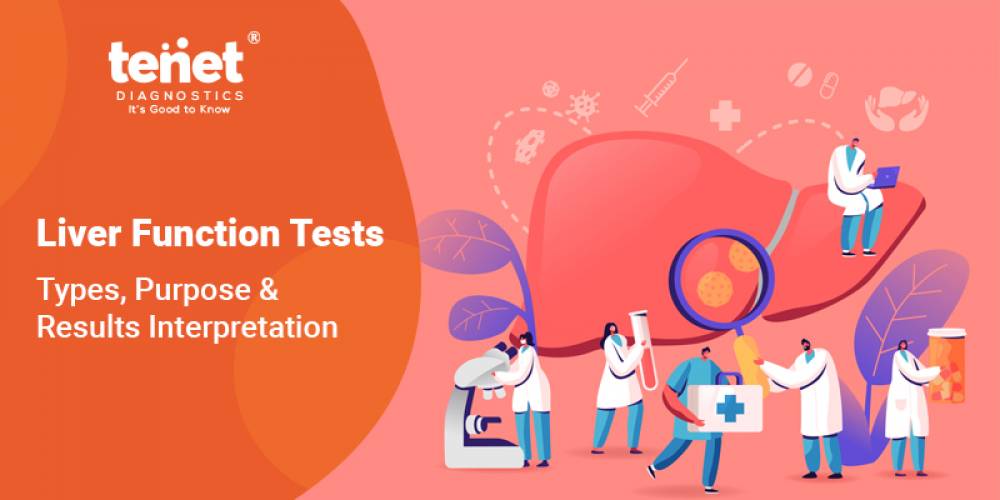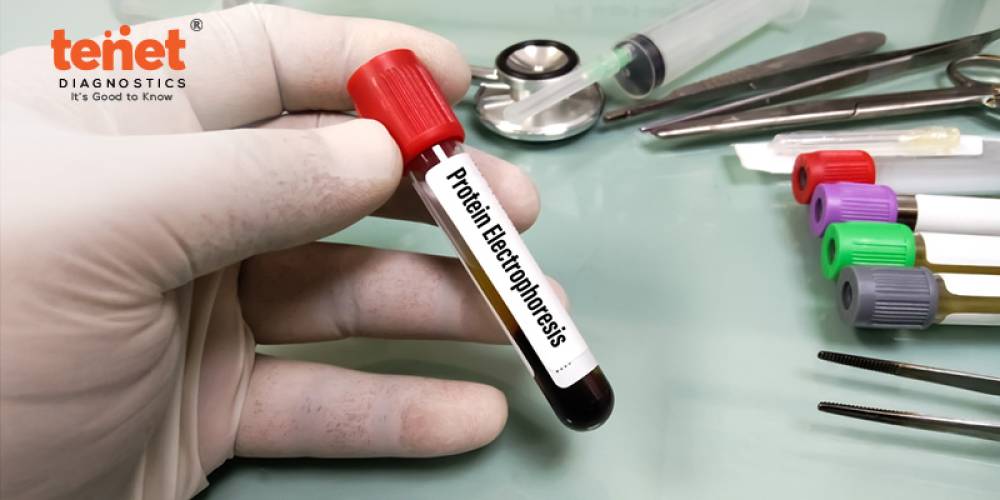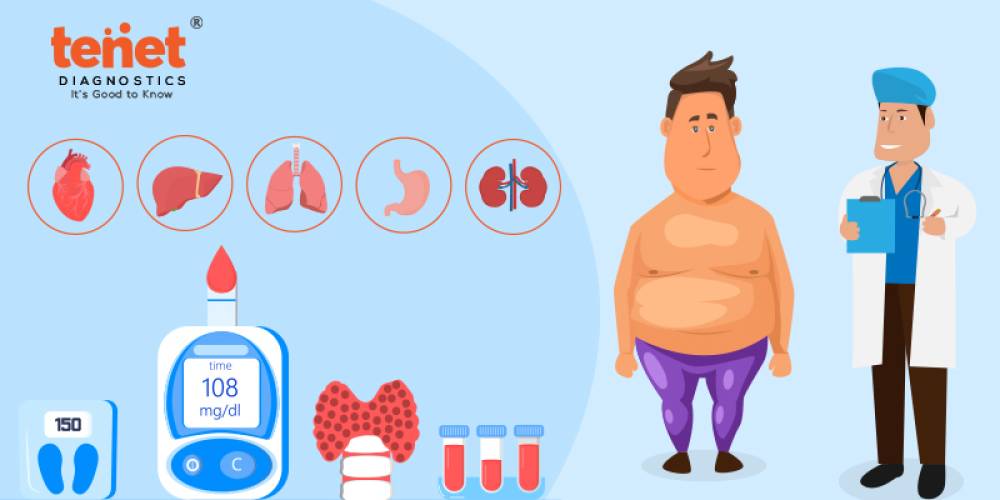Liver function tests, often known as liver chemistries, measure the levels of proteins, liver enzymes, and bilirubin in your blood to assist in evaluating evaluation of the health of your liver. They can also track the progression or treatment of existing diseases.
Depending on the test, higher or lower-than-normal levels of these proteins or enzymes can indicate liver disease. Liver function tests may be performed for various purposes, including screening for disorders such as hepatitis, monitoring the adverse effects of your medications, and evaluating the degree of liver disease.
This article discusses when you might require a liver function test, the various types of tests conducted, and how to interpret the findings.
What Is Liver Function Test?
A liver function test (LFT) is a blood test that measures various markers of liver function, including levels of enzymes, proteins, and bilirubin in the blood. These markers provide essential information about the liver's health, including how well it performs its vital functions, such as filtering toxins from the blood, producing bile for digestion, and storing glucose.
Parameters Of Liver Function Tests
- Alanine transaminase (ALT): A liver enzyme that helps convert proteins into energy for the liver cells. When the liver is injured, ALT is released into the bloodstream and increases ALT levels.
- Aspartate transaminase (AST): It is an enzyme that aids in metabolizing amino acids. It also usually is present in blood at low levels, and a rise in AST levels may indicate liver damage.
- Alkaline phosphatase (ALP) is an enzyme observed in the liver and bone and is vital for breaking down proteins. Higher-than-normal levels of ALP may reveal liver disease or damage, such as a blocked bile duct or certain bone disorders.
- Gamma-glutamyl transferase (GGT): It is an enzyme in the blood. Higher-than-normal levels may reveal liver or bile duct damage.
- Bilirubin (Total/Direct/Indirect): It is a waste product of red blood cell disintegration. It is usually metabolized by the liver and eliminated through your stool. However, it cannot be adequately processed by a diseased liver resulting in an abnormally high bilirubin level in the blood.
- Albumin and total protein: It is one of several proteins made in the liver. Your body requires these proteins to fight infections and execute other functions. Therefore, lower-than-normal levels of albumin and total protein in the body may indicate liver disease or damage.
- Globulin: This is a group of proteins made by liver others by immune system. They help fight infection and transport nutrients throughout the body.
These tests are part of a routine blood panel called a comprehensive metabolic panel.
Purpose Of Liver Function Tests
A liver function test process is often suggested in the following conditions:
- To check for damage from liver infections if you were exposed to a disease that causes hepatitis
- When you have hepatitis B and hepatitis C
- To monitor the side effects of a specific types of medications that affect the liver, including:
- Statins (Medicines Used To Treat High Cholesterol)
- Tuberculosis Drugs
- Antibiotics
- Antiseizure Medications
- To Monitor The Disease And Treatment
- If You Are Experiencing The Symptoms Of A Liver Disorder
- If You Have A Family History Of Liver Disease, Such As Fatty Liver Disease
- If You Have Some Medical Issues, Such As:
- Diabetes
- High Blood Pressure
- Anemia
- High Triglycerides
- Consumption Of Regular Alcohol
- If You Have Gallbladder Disease
Symptoms Of Liver Disorder
Liver function test symptoms may include the following:
- Weight Loss
- Fatigue Or Loss Of Energy
- Nausea and vomiting
- Diarrhea
- Jaundice
- Ascites (Fluid Collection In The Abdomen)
- Discolored Bodily Discharge
- Abdominal Pain
- Atypical Bruising Or Bleeding
Search for the liver test near me if you are experiencing any of these liver disorder signs.
Procedure Of Liver Function Tests
While having liver function test preparation, your doctor may advise you to avoid eating and taking certain medications because Certain foods and medicines can impact the results of your liver function tests.
During the examination
A tiny needle is put into a vein in the bend of your arm to collect blood for liver function testing. To manage your blood, the needle is linked to a tiny tube. You may have a brief pain as the needle is put into your arm and temporary discomfort at the spot after the needle is removed.
After the examination
Your blood will be analyzed in a laboratory. If the lab analysis is performed on-site, you could obtain your liver test function results in hours. However, if your doctor sends your blood to an off-site laboratory, the findings could arrive within a few days.
Results Of Liver Function Tests
When you receive your liver function test results, you will notice different values for the various measured compounds. This is because you can compare low and high levels to the usual ones. Therefore, your doctor will review your liver function tests normal range.
What is a Normal Range?
Liver function tests normal values change between gender and body types and between laboratories. Normal ranges are, on average:
Adult Male:
- Alanine transaminase (ALT): <45 U/L.
- Aspartate transaminase (AST): <35 U/L.
- Alkaline phosphatase (ALP): 40 to 129 U/L.
- Gamma-glutamyl transferase (GGT): 10 to 71 U/L.
- Total Bilirubin: <1.2 mg/dL
- Direct Bilirubin: <0.30 mg/dL
- Indirect Bilirubin: <0.9 mg/dL
- Albumin: 3.5 to 5.2 g/dL.
- Total proteins: 6.6 to 8.7 g/dL
- Globulin: 1.8 to 3.8 g/dL
Adult Female:
- Alanine transaminase (ALT): <34 U/L.
- Aspartate transaminase (AST): <31 U/L.
- Alkaline phosphatase (ALP): 35 to 104 U/L.
- Gamma-glutamyl transferase (GGT): 6 to 43 U/L.
- Total Bilirubin: <1.2 mg/dL
- Direct Bilirubin: <0.30 mg/dL
- Indirect Bilirubin: <0.9 mg/dL
- Albumin: 3.5 to 5.2 g/dL.
- Total proteins: 6.6 to 8.7 g/dL.
- Globulin: 1.8 to 3.8 g/dL
What do abnormal levels indicate?
AST and ALT: Abnormal levels may reflect liver damage. When your liver is stressed, these enzymes are most typically secreted into your bloodstream. If both are high equally, it implies nonalcoholic damage, infection or other toxins. Alcohol-induced damage is indicated when AST is twice as elevated as ALT.
Bilirubin: A high result on the bilirubin test may indicate that the liver isn’t functioning properly. Elevated bilirubin levels with elevated ALT or AST may suggest cirrhosis or hepatitis.
ALP: High levels of ALP may indicate liver inflammation, blockage of the bile ducts, or bone disease.
Liver Function Tests Price
The cost of LFTs can range from INR 650 to INR 850. Search for the liver test online because the test price can vary depending on the location and the laboratory performing the test. It is recommended to check the home liver function test if you are busy with your schedule for home sample collections.
Final Words
Liver function tests are blood tests used to assess your liver's health. Changes in protein or enzyme levels can warn clinicians of potential concerns such as liver cancer, fatty liver disease, or hepatitis.
Liver function tests blood can also help you identify whether medications are harming your liver or track liver disease progression.
Following a liver function test, your doctor can assist you in interpreting the results and discussing what they mean for you. Doctors may recommend additional testing, such as imaging or a liver biopsy if they suspect you have a liver disorder.







